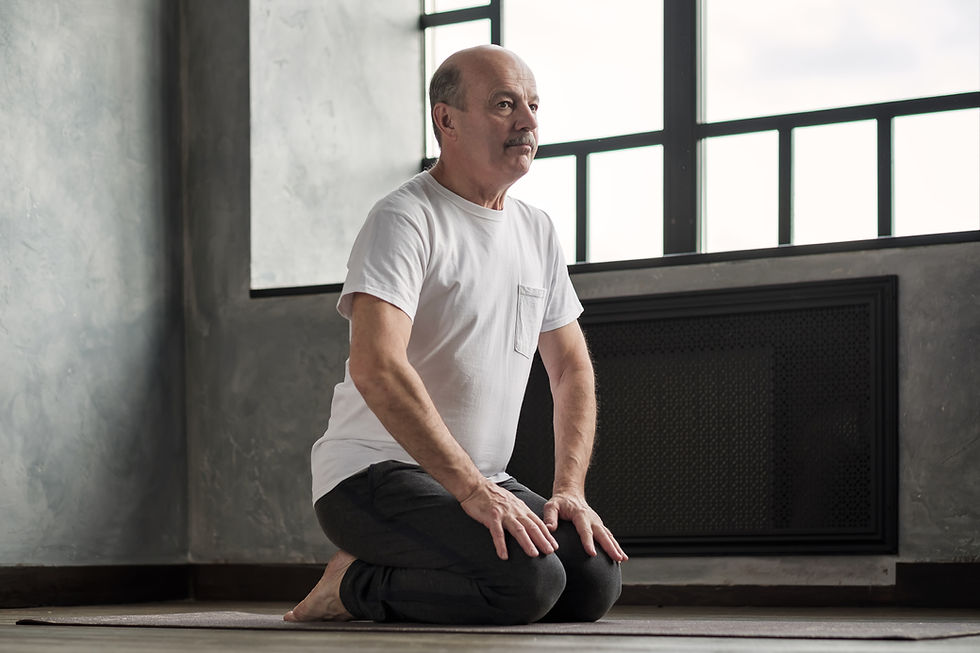How to overcome mental fatigue due to lockdown?
- Chris Hayot

- May 6, 2020
- 3 min read
In the current context of home confinement, the sensation of fatigue that we can feel is likely to be linked to the mental load associated with the COVID-19 epidemic, rather than to a purely physical cause. This state of mental fatigue can manifest itself in different ways such as mood changes, feelings of exhaustion or lack of energy, and thus promote the appearance of sedentary behaviors with the consequences of an increase in metabolic risks (overweight,..), cardiovascular (high blood pressure,..), locomotors (muscle deconditioning,..), but also an increase in mental disorders (anxiety,..). In order to prevent or overcome this state of mental fatigue and get through this difficult period as well as possible, we propose some practical tips.

A necessary period of adaptation and transition
When we make major life changes (entering university, moving to a new country, for example), a period of adaptation and transition is always necessary. The current health crisis and imposed home confinement also means adapting to a new way of life. This takes time and takes place in several stages:
A first week of adaptation consists in disengaging from our old routines and working to establish new ones, until the establishment of a more stable and predictable environment. During this phase, we may feel weak, but this is a normal stage of adaptation.
A more difficult period, around three weeks after the start of the outbreak, occurs when we feel that the confinement situation is permanent. During this period, we can suddenly feel a form of melancholy and suffer a significant drop in morale.
In view of the stressors caused by the situation, the complete functional adaptation takes place approximately three months after the start of confinement.
Organize your day and set goals to prevent morale decline
To avoid a drift of feelings of weakness and demotivation, it is important to establish a clear structure for your day. This structure allows you to take control of your day and prevent the accumulation of "dead time" which could make you think about the "imprisonment" situation in which we find ourselves. So even if sleeping in the morning can seem beneficial to you, it is still preferable, to preserve your morale, to organize your days and to have clear objectives:
In general, it is advisable to delimit the time slots devoted to work and to limit the encroachment of these schedules with those devoted to private life. It is therefore particularly important to properly plan possible work sessions by videoconference, and to limit their frequency and duration, so as to find a balance between work efficiency and mental load management.
It is also important to reduce the time spent in front of screens outside working hours (video games, social networks, TV information, for example) and to reserve time for recreational activities with family, or while online with family and friends. Consider finding more relaxing activities, such as music, meditation, or yoga, that have already proven to be effective in fighting mental fatigue.
Also, in addition to being an effective remedy for stress, physical activity is your ally in this period of home confinement. If physical exercise can tire you physically, but temporarily, it will effectively reduce your feeling of fatigue and gradually improve the quality of your sleep. If the development of mental fatigue has a negative impact on your commitment to physical activity, do not hesitate to reduce the effort intensity you are used to. It will be more beneficial anyway than a complete cessation of physical activity.
It is also best to look to the future and set goals. Feel free to aim for a future deconfinement date, while preparing to reset that date if necessary. Being optimistic about the future and having plans can also help reduce anxiety and fatigue.
By Chris Hayot, PhD in Biomedical Engineering
--
Sources :
Cox, R.C., Olatunji, B.O., A systematic review of sleep disturbance in anxiety and related disorders. J Anxiety Disord, 2016;37:104-29.
David A., Pelosi A., McDonald E., et al., Tired, weak, or in need of rest: fatigue among general practice attenders. BMJ, 1990;301(6762):1199‐1202.
Gruet M., Fatigue mentale : un facteur pouvant favoriser les comportements sédentaires en situation de confinement liée à la pandémie de COVID-19. 2020.
Kocalevent R.D., Hinz A., Brähler E., Klapp B.F., Determinants of fatigue and stress. BMC Res Notes, 2011;4:238.
Kuo B.C., Coping, acculturation, and psychological adaptation among migrants: a theoretical and empirical review and synthesis of the literature. Health Psychol Behav Med, 2014;2(1):16‐33.


Comments